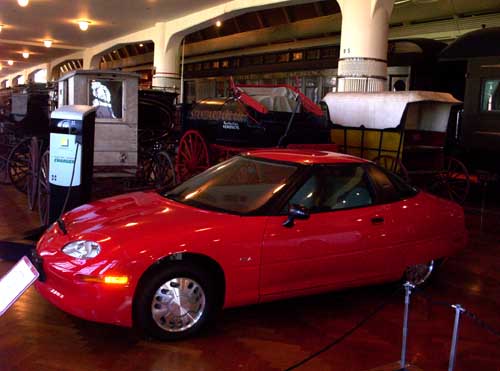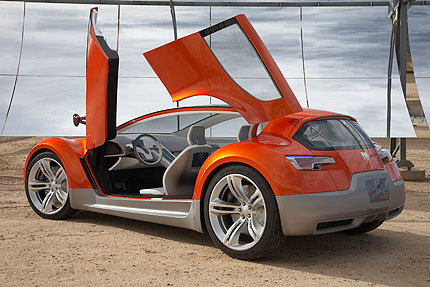The Scotsman
Well-Known Member
Detroit's sputtering Big Three turn to Washington for help
DETROIT (AFP) — Battered by weak sales, declining market share and miserable credit ratings, Detroit's Big Three automakers are now turning to the US government for help.
General Motors Corp., Ford Motor Co. and Chrysler LLC will be launching a campaign in the coming days to secure at least 25 billion dollars in federal loans to help get past the current economic malaise.
"This isn't a bail out," said Greg Martin, Washington spokesman for GM, the largest US automaker which has been awash in speculation for months that it is running short of cash.
"These are direct loans that we have to pay back," added Ford spokesman Mike Moran.
Detroit's goal is to have new legislation in place for the aid package by the time Congress adjourns in late September or early October.
The combination of an economic slowdown, the credit crunch and presidential politics, have enhanced the prospects of such a plan.
The possibility of one or more of the Big Three seeking bankruptcy protection -- which could have an enormous economic impact -- has created a sense of urgency.
"We are encouraging Congress to take this up now," said John Bozzella, vice president of external affairs and public policy at Chrysler LLC, created by private equity investors for the spinoff of the former Chrysler Corp. operations from Germany's Daimler.
Bozzella said the loan authorization was included in energy legislation was signed into law last December by President George W. Bush after passing through the Democratic-controlled Congress.
The law requires automakers to raise the fuel economy of vehicles sold in the US market to 35 miles (56 kilometers) per gallon (3.8 liters).
The Bush administration has estimated that retooling for the new standards would cost the automakers 100 billion dollars.
"This was authorized by Congress. There was a consensus this was needed to transform and drive new technology," Bozzella said.
The bill also authorized the US Department of Energy to approve up to 25 billion dollars in loans to fund technology reseach.
The legislation, however, requires that any loans authorized under the measure have to be guaranteed by the federal government. To do that Congress needs to appropriate 3.7 billion dollars for the insurance premiums, automakers said.
The bill for the insurance could rise to more than seven billion dollars if Congress boosts the loan total to 50 billion dollars.
"The long term goal of the legislation was to increase energy security and to ensure the US has the domestic capacity necessary for building more efficient vehicles," Bozzella said.
Suppliers and even foreign carmakers operating in the US could qualify for the loans, notes Bozzella.
"There are no restrictions in the language on which companies are in and which companies are out," he said.
The automakers say they have a commitment from the congressional leadership to take up the enabling legislation when both the House and Senate reconvene in the coming week.
Both Barack Obama, the Democratic presidential candidate, and Republican nominee John McCain have endorsed idea of loan guarantees.
The chances for passage are helped by the fact that four of the states that would most benefit from the legislation, Michigan, Ohio, Indiana and Missouri, would benefit from research and assembly plants from a new technology drive.
"Michigan, Missouri, Indiana, Ohio -- that's where the election is going to be decided right there," noted one Ford official, who asked not to be identified.
Ellen Hughes Cromwick, Ford's chief economist, said the credit crunch has had a serious impact on carmakers, limiting their options for raising fresh capital.
"It could be the credit crunch could persist for some time," she said. "That's a situation that adds a lot of uncertainty to the market."
Peter Morici, economist at the University of Maryland, said any loan program even if it is called a research plan would be a "fig leaf for a subsidy" that distorts the market.
But he added that "our trading partners give us no choice. Every other major auto manufacturing country protects their industry so we may have to do the same."
http://afp.google.com/article/ALeqM5jB-SF8CATsHxpEA3Yke755BiTDbg
Now its the turn of the car makers! Why not just nationalise everything and be done with it!




